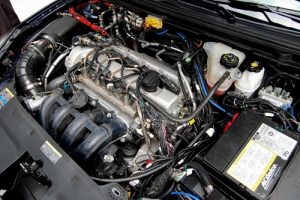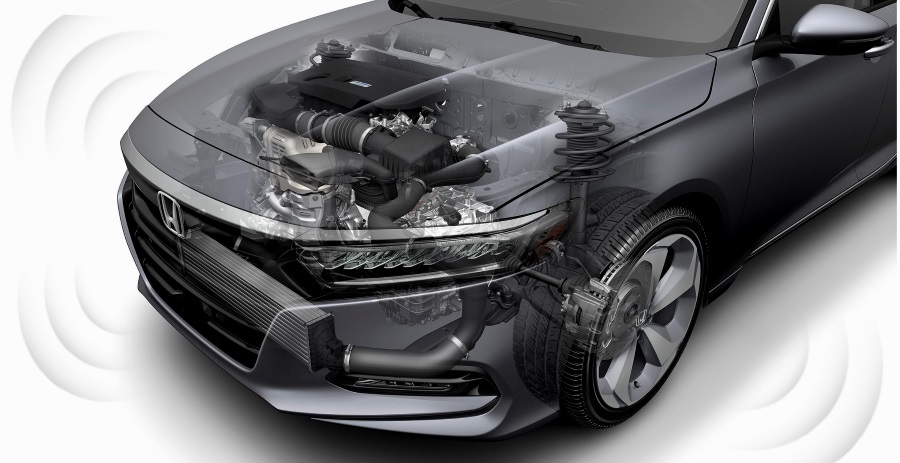What does a knocking engine mean?

Inside a combustion engine, air and fuel are burnt to create energy, giving the car the power it needs to run. If the engine’s air/fuel mixture is not being burned correctly, your engine may produce a knocking noise. This happens due to fuel burning unevenly, rather than at a constant rate.
Engine knocking should be addressed promptly as it can cause damage to the engine components, including the pistons, connecting rods, and bearings.
Learn more about knocking engines >
Common causes of engine knocking:
There are many different things that can cause knocking in your car’s engine. Some problems can be easily fixed whereas others can indicate serious damage. Below are some common causes of engine knocking:
Car running on low-octane fuel – The octane rating of petrol tells you how much the fuel can be compressed before it ignites. When gas ignites by compression rather than through the ignition system spark, it causes knocking in the engine.
Carbon build-up on the cylinder walls – Low-octane fuel can cause a build-up of carbon contaminants of your cylinder walls. These carbon contaminants can affect your engine’s ability to burn the air/fuel mixture. This can also occur if you piston oil rings are worn.
Incorrect spark plugs – The spark plugs ignite the air/fuel mixture in your engine. Using the incorrect spark plugs can create deposit build-up and lead to improper engine temperatures. These two problems can cause knocking in your vehicle’s engine.
Overheating engine – When an engine reaches high temperatures, the fuel can burn unevenly, causing a knocking noise. Problems in your cooling system can often cause overheating. If your engine begins to overheat, we recommend that you stop driving immediately to avoid a very expensive engine replacement.
Damaged engine components – Various components surrounding the engine can wear out or break, causing knocking noises in your engine. Some of these include the camshaft bearings, hydraulic valve lifters, big end crankshaft bearings, conrod bearings, piston knock or slap, water pump bearings. valve train bearings and valve rocker arms
Faulty knock sensor -The knock sensor is responsible for detecting knocking and adjusting the engine’s timing to prevent it. A malfunctioning knock sensor may not detect knocking accurately, leading to persistent knocking.
Incorrect ignition timing – If the spark plugs fire too early or too late in the combustion cycle, it can cause knocking.
How important is it to fix a knocking engine?
It is better to treat engine damage sooner rather than later. Unusual sounds including knocking noises from your engine indicate damage is occurring. Therefore the wear on engine components will increase, resulting in a bigger repair bill. Taking your vehicle to a mechanic will allow the problem to be diagnosed. That way, you can decide if it is worth fixing.
Should you drive with a knocking engine?
It is generally not recommended to drive with a knocking engine. Engine knocking is a sign of a problem within the engine, and continuing to drive with the issue can cause further damage and potentially lead to engine failure.
If the engine eventually fails, you will be looking at a much more expensive engine replacement. For this reason, we recommend repairing the issue as a form of preventative maintenance.
Knocking Engine – Inspection, Servicing and Replacement in Hamilton
At Grimmer Motors, our team of highly experienced and skilled mechanics can quickly determine the cause of your knocking engine or engine noises. We can then provide reliable, high-quality engine services and part replacements.
Our advanced diagnostic tools allow us to monitor your engine in real time, detecting issues quickly and offering effective services and repairs,
For engine diagnostics in Hamilton, contact Grimmer Motors today!

